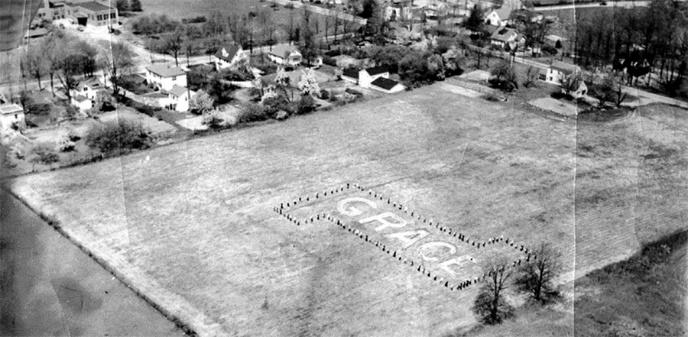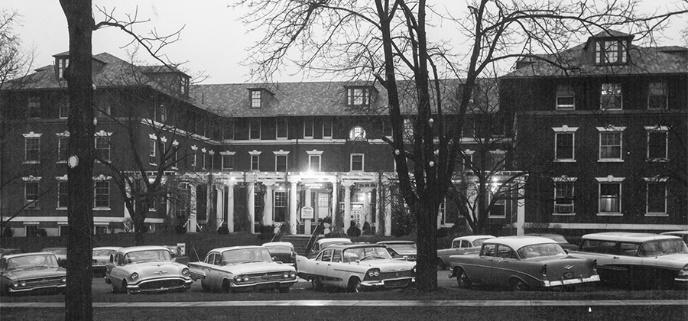Our Story
Grace College and Grace Theological Seminary both have a rich history as partners in higher education. Since its founding, Grace Theological Seminary has become a prominent center for master’s and doctoral study in evangelical ministry and theology for students from around the world. Likewise, Grace College in Indiana, a liberal arts college, has grown to its current position of academic prominence, offering more than 100 majors, minors, and concentrations in the arts and sciences, behavioral sciences, business, education and ministry studies.

Beginnings
Affiliated with the Charis Fellowship, (formerly Fellowship of Grace Brethren Churches), Grace Theological Seminary was founded in 1937, and the college was established 11 years later in 1948. The founders—including Alva J. McClain, the institution’s first president—drew distinctive features from their Brethren heritage, which, in turn, drew from a variety of historical traditions. These historical traditions included Pietism, a centuries-old movement of personal and experiential faith, as well as the Anabaptist and Calvinist branches of the Protestant Reformation. This heritage also included a promise to remain free from worldly conformity yet relevant to the culture around them—a commitment that challenged the Brethren movement throughout the 19th and early 20th centuries. As McClain and his fellow founders established the seminary and then the college, they sought to create an environment that was informed by the eclectic heritage of the Brethren tradition while fashioning an institution that would thrive within American evangelicalism, which grew increasingly robust and influential in the 1930s and 40s. Grace’s evangelical identity was enhanced by the location of the seminary and college in Winona Lake, Indiana, a resort community that had become a center for Progressive Era social and political activity and, by the 1920s, a well-known location for evangelical Bible conferences.

A Deep Experience of Community
Throughout the ensuing decades, both Grace Theological Seminary and Grace College have grown exponentially. The college and seminary have weathered storms and experienced periods of change as any institution does. But throughout its history, the institution has remained committed to its heritage, emphasizing biblical authority, a deep experience of community, living under the sovereignty of God and fostering experiential faith, even as Grace continues to offer an educational program that is rigorous and academically excellent as well as practical. We are proud that the streams of our heritage flow back to the 16th and 17th century and also excited about the role Grace has played within American evangelicalism. Informed by our diverse heritage while committed to the values that unite us, we look to the future, offering quality undergraduate and graduate degree programs through the six schools that constitute Grace College & Theological Seminary: the School of Arts and Sciences, the School of Behavioral Sciences, the School of Business, the School of Education, the School of Ministry Studies and the School of Professional & Online Education.
Thousands Serving Throughout the World
Over the years, thousands of Grace Theological Seminary graduates and Grace College graduates have gone out to serve in various ministries and industries in the United States and throughout the world. Grace College & Seminary has been instrumental in helping thousands of students form a Christian worldview within a challenging and vibrant liberal arts Christian College academic environment, preparing students for successful careers, family life, and leadership in local churches.
Past Presidents
Since Grace College’s inception, we have been blessed with incredible leadership that has led us to where we are today. Click the button below for in-depth biographies on each of our presidents and the legacy they’ve left behind!